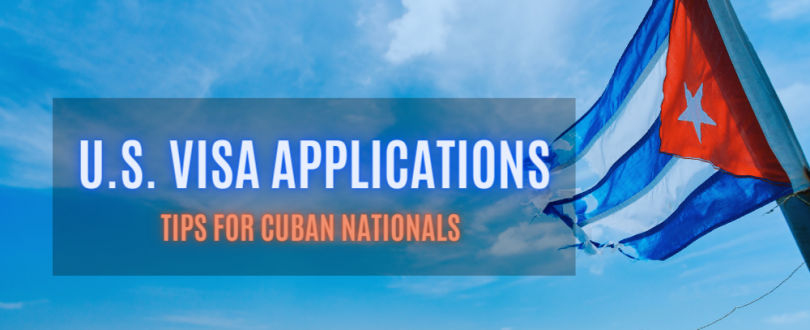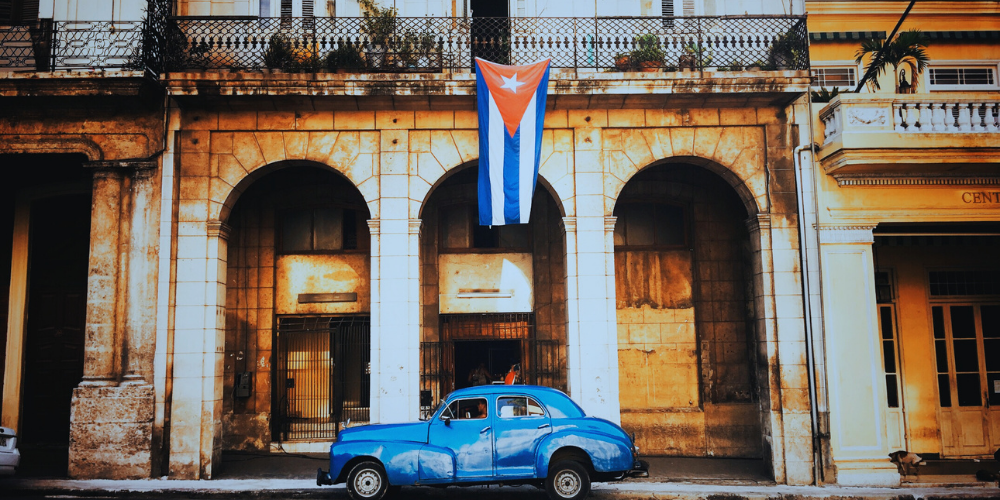
Are you a Cuban national contemplating a visit, educational pursuit, or a new beginning in the United States? Navigating the U.S. visa application landscape can be complex, especially with unique challenges that might not apply to other nationalities. This comprehensive guide offers detailed steps and practical tips to effectively manage the visa application process. By understanding these key elements, you’ll be better prepared to embark on your journey with confidence and a higher likelihood of success.
Overview of Visa Categories
Choosing the right visa is crucial for ensuring that your visit to the U.S. aligns with legal requirements:
Non-immigrant Visas: Ideal for temporary stays. Popular categories include:
– Tourist (B-2): For those traveling for leisure or tourism.
– Business (B-1): For individuals engaging in business activities, but not seeking employment in the U.S.
– Student (F-1): For those attending an accredited U.S. college or university.
– Exchange Visitor (J-1): For individuals approved to participate in exchange programs focusing on culture and education.
Immigrant Visas: For those intending to migrate and reside permanently. These are typically sponsored by family members or employers.
Special Programs: The Cuban Family Reunification Parole Program is one example, designed specifically to help Cuban families reunite in the U.S.
Understanding these categories will help you apply for the visa that best matches your reasons for traveling.
Key Requirements for All Visa Applicants
Successful visa applications hinge on meeting these foundational requirements:
– Valid Passport: Must be valid for at least six months beyond your intended period of stay in the U.S.
– Visa Application Fee: Be prepared to pay the required fee, which varies based on the visa type; this fee is non-refundable.
– Documentation: Comprehensive documentation supports your application, including proof of financial stability, reasons for traveling, and intentions to return to Cuba.

Step-by-Step Application Process
A systematic approach to your visa application can greatly enhance your success rate:
- Complete the Appropriate Form: For non-immigrant visas, fill out the DS-160; for immigrant visas, the DS-260.
- Schedule an Interview: Appointments are made at the U.S. Embassy in Havana. Early scheduling is crucial as slots are often booked quickly.
- Prepare for Your Interview: Collect all necessary documents, and rehearse responses to typical questions that consular officers might ask.
Documentation Checklist
Prepare and organize the following documentation well ahead of your interview:
– Essential Documents: Current passport, photos, confirmation pages of your form, and payment receipts.
– Supporting Evidence: This could include job letters, proof of property or family in Cuba, bank statements, and any invitations from U.S. hosts.
Tips for a Successful Visa Interview
Maximize your chances of approval with these interview tips:
– Clearly Define Your Purpose: Be precise about why you are visiting the U.S. and your plans during your stay.
– Demonstrate Strong Ties to Cuba: Convincingly show that you have compelling reasons to return home, such as ongoing employment, family commitments, or educational pursuits.
Handling Visa Denials
If your visa application is denied:
– Understand the Reason: Consular officers are required to provide an explanation for the denial.
– Address the Issues: If possible, correct any deficiencies and reapply. In some cases, seeking legal advice may be beneficial.
After Visa Approval
Following approval, ensure you are prepared for the next steps:
– Familiarize Yourself with Visa Conditions: Understand the rights and restrictions tied to your visa type.
– Prepare for Entry: Make sure you have all necessary documents ready for inspection upon arrival in the U.S.
Successfully navigating the U.S. visa process as a Cuban national involves thorough preparation and an understanding of complex regulations. If you need further guidance, Visahelp offers specialized assistance to streamline your application process. With their support, you can enhance your application’s strength, ensuring that you approach your visa interview with the best possible preparation.
Embrace the opportunity to explore, learn, or start anew in the United States, armed with the essential knowledge to make your visa application journey a success.

